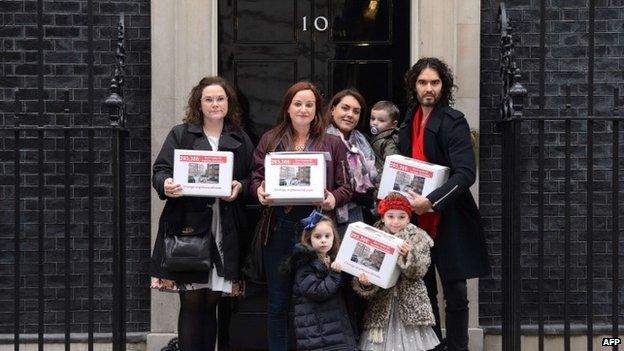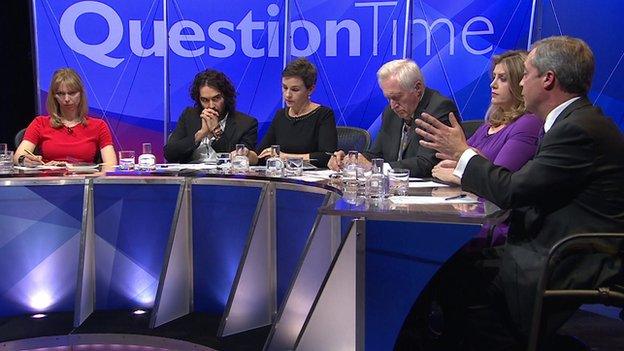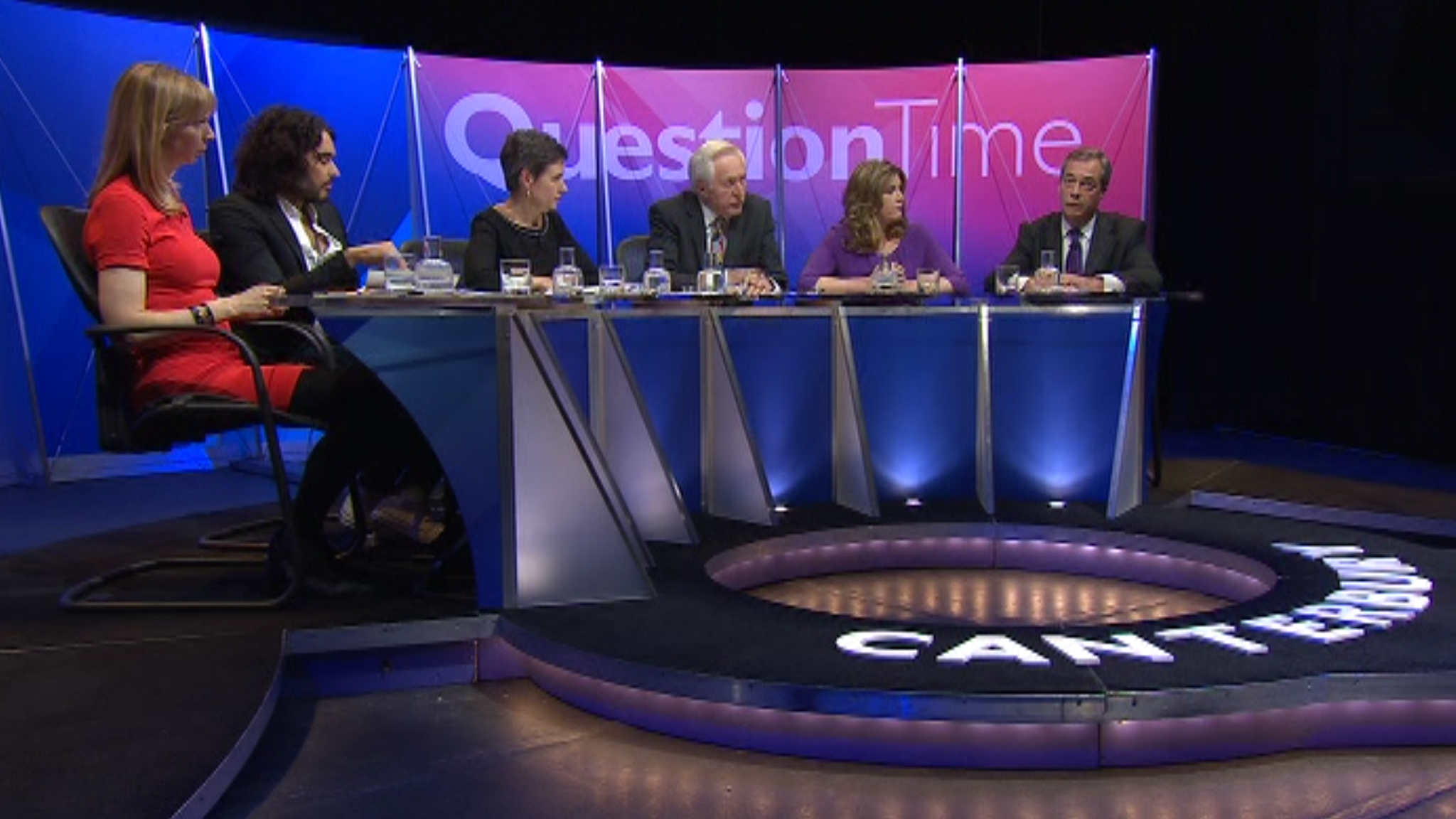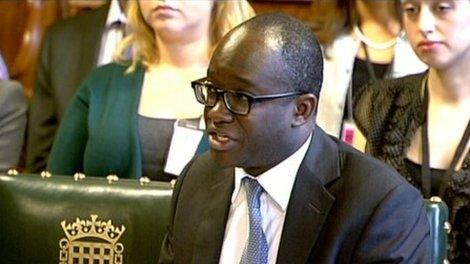Russell Brand: Can an outsider challenge the status quo?
- Published
Russell Brand criticised Nigel Farage as a "pound shop Enoch Powell" for his views on immigration
In one of the liveliest exchanges of Thursday's BBC Question Time, Russell Brand faced an animated challenge from a man in the audience.
"Stand. Stand for parliament," he shouted, jabbing his arm emphatically at the comedian and campaigner, who looked somewhat taken aback.
"If you're going to campaign, then stand. You have the media profile for it. Do it."
Russell Brand originally made his name as a comedian, actor and radio personality but in recent years has developed a serious profile as an activist and campaigner.
He has guest-edited the New Statesman, memorably appeared on the BBC's Newsnight with Jeremy Paxman and on Radio 4's Start the Week to expound his views on political issues - capitalism, corporate greed, inequality and taxation - rather than to raise laughs, though the appearances were certainly entertaining.
'Revolution'
His latest book "Revolution", published in October, outlines his radical left-wing, anti-capitalist agenda.
"Since the financial crash, banker bonuses have exceeded £80 billion," he told Question Time.
"George Osborne campaigned to stop caps being placed on banker bonuses at the same time as there were austerity cuts against the poorest among us.
"We need to close tax loopholes that are exploited by big corporations. I've got money now, I've seen rich people. There's plenty of money out there, it's just not being distributed.

Brand has championed campaigning methods such as direct action and "liquid democracy"
"I know where the power is, I know where the money is, I know what I've got to do," he said.
But alongside these strong views, and the apparent call to action, is a vehement rejection of parliamentary democracy and traditional political structures.
Famously he doesn't vote himself and says he doesn't see any politician in the system worth voting for.
In the Newsnight interview he said: "Don't bother voting. Stop voting, stop pretending, wake up, be in reality now. Why vote? We know it's not going to make any difference."
There's no doubt that Mr Brand's high profile - he has nearly nine million Twitter followers - gives him a huge public platform.
He is successfully exploiting several trends in modern life - the interest in celebrities, the anti-politics mood, and the popularity of social media.
'Positive message'

The comedian who distances himself from the political class was challenged to join it
But the man who claims he is merely "a comedian on Twitter" is coming under fire for his rejectionist approach.
On Question Time, the Conservative MP Penny Mordaunt told him: "I think you have a huge opportunity, I really wish you'd give people a positive message about voting and engagement in politics."
UKIP leader Nigel Farage sought to put clear water between his own anti-establishment stance and that of Russell Brand: "This isn't the way politics is done in this country," he wrote in the Independent after the TV clash.
"And I'll be damned if a chest hair-obsessed Hollywood type tries to tell us it is. There's evidently a major choice for people ahead of the general election in May next year."
Russell Brand insists there are ways to influence mainstream politics without taking part in it. "Revolution" outlines his support for campaigning methods such as direct action or what he calls "liquid democracy".
When he got home from Question Time, he offered some thoughts on his vision of politics in a blog, external, saying "time and format" had prevented him from explaining them during the programme.
"The people have the wisdom, not politicians...the old paradigm is broken and will not be repaired," he wrote.
"The future is collectivised power. Parliamentary politics is dead, they, its denizens, wandering from aye to neigh from Tory to UKIP know it's dead and we know it's dead."
Russell Brand's critics will continue to press him for more detail as to how this collectivised power will be mobilised; what exactly he wants to put in the place of parliamentary politics.
"I'd stand for parliament but I'm scared I'd become one of them," was his rather meekly delivered answer to his Question Time challenger.
Many in the audience seemed dissatisfied with the response but it seems unlikely the flamboyant firebrand will ever put that claim to the test.
- Published11 December 2014

- Published9 September 2014
